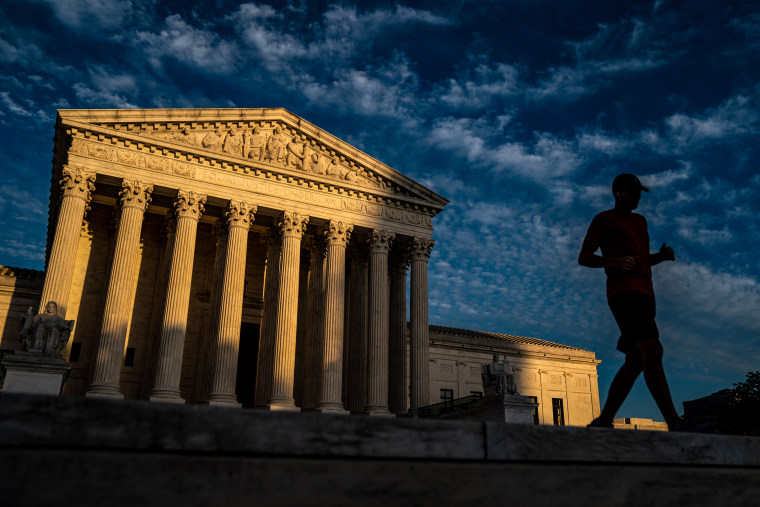WASHINGTON — The Supreme Court on Monday declined to consider making it harder for people to challenge what they allege is the unconstitutional government endorsement of religion.
The court turned away a dispute over a vigil held by uniformed police officers in Florida that included Christian prayers after a local shooting spree, with conservative justices Neil Gorsuch and Clarence Thomas both writing opinions suggesting they believe the court should take up a similar case in future.
The court rejected an appeal brought by the city of Ocala seeking to dismiss a lawsuit claiming that the event violated the Establishment Clause, a provision of the Constitution’s First Amendment that prohibits government endorsement of religion. The case now returns to lower courts, where it could be dismissed on alternative grounds.
Ocala, represented by the American Center for Law and Justice, a conservative legal group, asked the court to say that plaintiffs in such cases do not have legal standing simply because they object to the message being conveyed. They call it “offended observer standing” and allege that the plaintiffs deliberately attended the event with the intention of suffering a legal injury. If the Supreme Court embraces Ocala’s arguments, it would make it more difficult to mount Establishment Clause challenges. The court has a 6-3 conservative majority that strongly backs religious rights and has in recent cases reduced the separation of church and state.
Thomas wrote a dissenting opinion saying that he had "serious doubts" about how the lower court had decided the standing issue.
"This court’s intervention has become increasingly necessary, as time has demonstrated that this problem is not going away by itself," he added.
Gorsuch indicated he agreed with the city's lawyers in principle, although he did not object to the court turning away the Florida case at this point.
"This court has never endorsed the notion that an 'offended observer' may bring an Establishment Clause claim," he wrote.
The lawsuit was filed by married couple Lucinda and Daniel Hale, Frances Jean Porgal and Art Rojas. Daniel Hale and Porgal have since died. The plaintiffs, who are atheists, are represented by the American Humanist Association, a group that advocates for strict exclusion of religion from the public sphere.
The legal fight centers around the city’s response to a 2014 shooting spree in which several children were injured. The police chief, as well as other members of the police department, planned a vigil in the town square and used the department’s Facebook page to invite members of the public to attend. The plaintiffs allege that the event included Christian prayers delivered by police department chaplains.
U.S. Magistrate Judge Philip Lammens of the Middle District of Florida ruled for the plaintiffs in 2015, noting that the case was not about the right of the individual officials to pray in public or about the purpose of the vigil, which was to encourage a reduction in crime. Instead, it is about whether the city and its officials “could organize and promote the vigil … where the focus of the event was prayer, which, as the law has repeatedly recognized, is fundamentally religious.”
In a June 2022 ruling, the Atlanta-based 11th U.S. Circuit Court of Appeals ruled that the plaintiffs have standing but sent the case back to the district court for further review on whether there was an Establishment Clause violation.
The appeals court ruling came just a month after the Supreme Court’s most recent Establishment Clause decision, in which it ruled in favor of a public high school football coach who led prayers on the field. The court said the high school was wrong to discipline the coach out of concerns that his prayers constituted endorsement of religion. The appeals court in the Ocala case said the district court judge should see whether the Supreme Court ruling has any bearing on how the dispute should be resolved.

